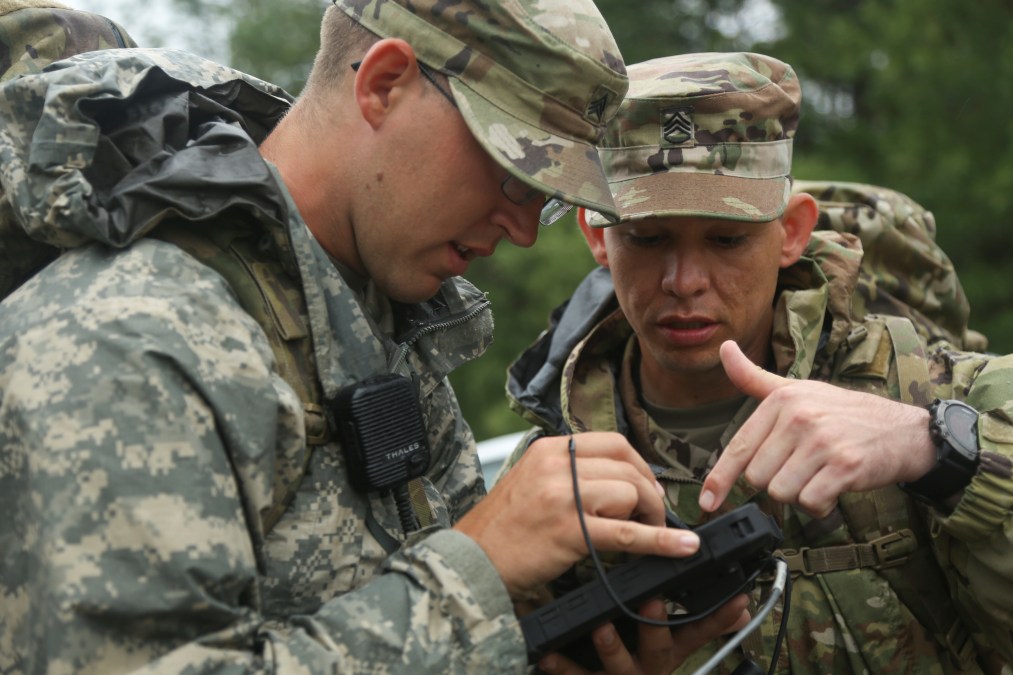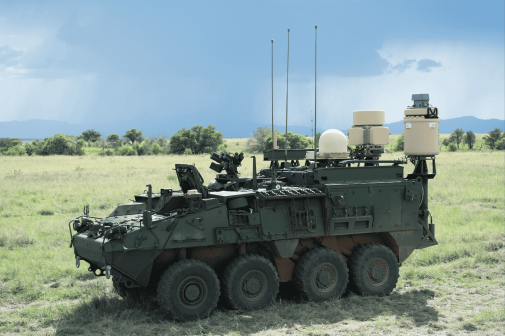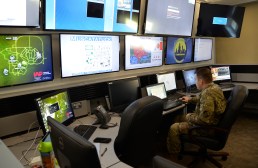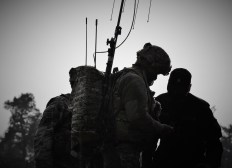Army working on new cyber, electromagnetic weapons after large-scale test event

The Army recently concluded a large event that tested new cyber and electromagnetic spectrum weapons in its tactical operations.
The event, Cyber Quest 2021, was hosted by Army Futures Command and brought in users from across the service to test 15 new technologies from more than a dozen vendors, senior leaders told reporters Monday. Many of the lessons learned from the 13-day event will be put into procurement requirements documents for new technologies the Army is focused on as part of its broader strategy to deter great power conflict.
“This is unique because of the dialog it allows,” said Maj. Gen. Neil Hersey, commanding general of the Army Cyber Center of Excellence that helped lead Cyber Quest. Hersey said the partnership with industry was a rare opportunity to get new tech into the hands of on-the-ground operators and allow for vendors to receive feedback.
One of the new parts of the annual exercise was a close partnership with the Army Maneuver Center of Excellence at Fort Benning in Georgia. It’s a partnership that’s expected to continue as the Army tries to ramp up the development of robotic vehicles and operations that will rely on networking units together.
“The exercise really is the first of its kind that we have done,” Hersey said on a call with reporters.
One of the exercises during the event had a platoon of soldiers tasked with defending an airbase in the Indo-Pacific against a simulated attack. The team was able to operate anti-jamming radios and track enemy movements by their electromagnetic signatures.
Troops on the ground used new tools to detect enemies, send data back up the chain of command, have it analyzed and then sent back — something that often takes longer than they can afford. Soldiers were even able to link a small drone to their network to inform movements.
Building anti-jamming radios and other electromagnetic-spectrum manipulation tools is a new tech-focus for the military after two decades of relatively low-tech conflict. The Department of Defense sees these types of tech as critical in thwarting war with China, the U.S.’s No. 1 strategic competitor. U.S. military leaders anticipate China would be very technical in its maneuvering, deploying cyberattacks, satellite jamming and network interference in a battlefield scenario, something American forces have not recently experienced.
The Army also tested the use of an offensive cybersecurity measure of using code that can mask some of the signatures of an American-led cyberattack. The highly secretive tool is one of the ways the U.S. wants to ensure its offensive measures are not traced back to the homeland, Col. John Transue, acting director for Army Cyber-Capability Development Integration Directorate (C-CDID).
The code uses pattern recognition to obfuscate the digital signatures left by cyber warriors. Developed by Accenture, it would not only be used by the Army but across the cyber workforce and be able to be “changing from mission to mission,” Transue said.
The larger tests during Cyber Quest 2021 will play an important role in the Army’s drawn-out acquisition process.
“The testing that goes on helps inform the requirement documents,” Col. Chris Haffey said on the call with reporters.
The tests are one way to talk directly with industry and have soldier feedback on products within the confines of the traditional acquisition process, moving the military away from arduous and complex requirements-writing.
“This year was about seeing what we could do together,” said Maj. Nelson Reynolds, a United Kingdom exchange officer stationed at Army Futures Command who worked on Cyber Quest.






